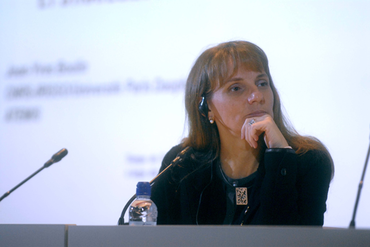 By IRMA ROGNONI VIADER, Attorney, Barcelona Spain
By IRMA ROGNONI VIADER, Attorney, Barcelona Spain
Considering the family unit as a whole, promotes cross-cutting policies to offer a more multidimensional way of thinking.
I think community building is one of the keys for maintaining self-discipline in order to not lose alignment with the environment where we live.
We live on the earth, and on earth there are human beings all around us. If we forget that, we run the risk of losing the guide of what is the most important objective of the experience of being alive. Never mind the profession in which we are working, or the situation in where one is, there is always a way for the practice of community building.
In my case, as a lawyer, mediator in conflict resolution and former city councilor in the government of Barcelona, Spain from 2011-2015, I decided to dedicate my efforts to children and families. One of the activities I undertake to benefit the community is offering my time as the strategic adviser to an international project with an entity called International Federation for Family Development (IFFD), and with the support of United Nations (UN DESA Focus Point on Family), UNICEF and a Catalan Bank, CAIXABANK, Fundació La Caixa.
With the help of exceptional experts from around the world, we are preparing a guide for lawmakers, policymakers and decision-makers in order to consider the need to prioritize families—not only as an element of stability and cohesiveness of communities and society which is generally accepted today—but also, to improve the “well-being of families” which represents a step beyond the “well-being of individuals”. Family policies, and family impact lens- considering the family unit and its dynamic as a whole, promotes cross-cutting policies to offer a more holistic and a multidimensional way of thinking.
In the near future lawmakers, for example, have to acquire the consciousness when they reform the law to ask and consider: does this labor law allow young people to live on their own, autonomous from parents, giving them the possibility to build their own futures? When we modify urban planning should we be thinking about the elders´ needs, the disabled, and mothers with baby carriages (universal accessibility)? In my opinion this “change of law architecture” or approach to law making is the first step that will take us beyond “the age of the atrocious individualism”, and the preparation for the harmonization of the concept of the “states” which we have known in the last centuries.

